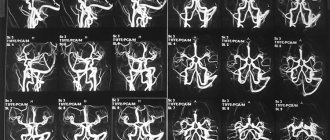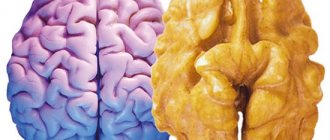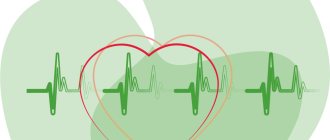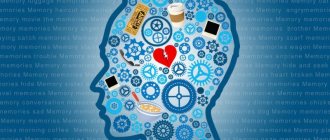Lemon
A simple slice of lemon added to tea may be enough to improve memory. And it's all about vitamin C, which prevents forgetfulness and helps keep in mind everything that will be needed in the coming hours.
Lemonade
3 lemons
2 liters of cold boiled water
1 cup sugar (adjust the amount to taste)
3 mint leaves
Step 1. Wash the lemons and scald with boiling water. Cut into small pieces.
Step 2. Place chopped lemons in a blender bowl and add sugar, add mint and puree everything in a blender until pureed.
Step 3 . Pour water over the puree and adjust the amount of sugar. Place in the refrigerator overnight.
Step 4 . The next morning, strain and drink chilled.
The most useful products
Fatty fish
The list of healthy foods opens with fatty fish, and there is an explanation for this: omega-3 acids have a positive effect on memory, promote concentration, and slow down the decline of mental activity. Dishes made from trout, salmon, and sardines will improve memory, improve mood, and help resist stress.
Nuts
Almonds, walnuts, pistachios, hazelnuts - almost all of them contain proteins, minerals and a set of vitamins that are good for the brain.
bitter chocolate
A sugar-free product with at least 80% cocoa content will help with concentration and prolong the activity of brain cells.
Blueberry
Due to their high antioxidant content, blueberries slow down the aging process of brain cells. Add blueberries to yogurt or porridge for pleasure and benefits. Regular use of this product will reduce the risk of developing neurodegerative diseases.
Coffee
Caffeine and antioxidants contained in natural coffee have a positive effect on brain function. Caffeine improves attention and mood, enhances concentration. Despite the ongoing debate among scientists about the benefits of coffee, examples confirm its effectiveness in the fight against Alzheimer's and Parkinson's diseases.
Green tea
Green tea contains caffeine and a number of other beneficial elements. Among them is L-theanine, an amino acid that helps improve attention, reduce anxiety and depression. In addition, green tea is rich in antioxidants, which is important for the prevention of atherosclerosis and dementia.
Turmeric
The brightly colored seasoning has been very popular lately. Curcumin is a substance that activates blood circulation and improves memory. Nutritionists recommend including turmeric in the diet of people suffering from Alzheimer's disease. Curcumin not only helps cleanse blood vessels from atherosclerotic plaques, but also stimulates the production of serotonin. This helps maintain an even emotional background, which is important when fighting depression.
Broccoli
Green broccoli inflorescences contain useful substances, antioxidants, vitamin K. This element promotes the activity of brain cells and improves memory.
Eggs
Eggs are a source of B vitamins, folic acid, and choline. All these elements are necessary for normal brain activity and memory improvement. Lack of B vitamins leads to depression and the risk of early dementia. Therefore, by including eggs in your diet, you provide brain cells with useful substances and prolong their activity.
Pomegranate juice
A unique combination of vitamins, microelements and organic acids has given pomegranate the reputation of a most valuable dietary product. Freshly prepared pomegranate juice will help increase the level of hemoglobin in the blood and ensure normal blood supply to brain cells. In addition, the guarantor is an excellent antioxidant that cleanses blood vessels and prevents the aging process.
We have provided here a far from complete list of useful products. The diet should include greens and salads, carrots and red grapes, cereals, tomatoes, citrus fruits and many other foods that provide the brain with the vitamins necessary for active work.
Features of the diet for children and adolescents
Until the age of 16, the brain develops and increases in volume. That is why it is important for children and adolescents to maintain a balance of minerals, metals and vitamins to improve memory.
Back in the days of the Soviet Union, doctors recommended the universal use of iodized salt for cooking, and periodically giving children fish oil . In principle, these rules are still relevant today.
In addition to iodine and omega-3 fatty acids, the diet of preschool and school-age children, as well as adolescents, should include:
- seafood (iodine, omega-3 acids);
- apples (iron);
- walnut (magnesium, vitamins B and E);
- fresh fruits and berries;
- vegetables rich in fiber (the best option is beets);
- cereals (they contain essential oils, fiber, antioxidants);
- carbohydrates (preferably “complex”);
- milk (protein, minerals).
Nutritionists also say that it is extremely useful for children to add rosemary, sage, mint, and cypress to their usual dishes . You can use very little of them so that even the taste of the food does not change.
Food for the mind, or how foods affect our memory?
Why do we sometimes fail to collect our thoughts? It's all about fueling the brain! Like all other organs, our brain needs minerals, vitamins and other useful substances to function fully and efficiently.
What vitamins improve memory:
- Water is the source of life. And for the brain, it also makes up more than three-quarters of it. Lack of water negatively affects the brain's ability to perceive and remember information. This is explained by the fact that during thirst, our body actively produces the stress hormone cortisol - it is this hormone that turns on the receptors that suppress the mechanism of storing information and reproducing it. Remember how at school you forgot a poem before class, although at home you told it to your mother without hesitation? This is the result of stress hormones.
- B vitamins – getting enough of them is extremely important for healthy brain function. Vitamin B1 (thiamine) and vitamin B9 (folic acid) help improve the processes of memorization and assimilation of information. If your daily diet is rich in B vitamins, then you will not be afraid of Alzheimer's disease in the future!
- Vitamin E – preserves the youth of brain cells and prevents memory deterioration in old age.
- Omega-3 fatty acids improve the supply of oxygen to brain cells, thereby speeding up the transmission of signals between them. Attention, concentration, quick memorization of new information and excellent memory are the result of a proper diet rich in fatty acids.
- Zinc is an essential element for good memory. A sufficient amount of zinc in the diet promotes normal signal transmission by neurons in the hippocampus, the part of the brain involved in memory consolidation (the transition from short-term to long-term).
- Iodine is useful not only for the thyroid gland. It plays an important role in the development and reproduction of cells, regulates heart rate, and is also responsible for our mental health and normal emotional background. All these qualities make iodine indispensable for the brain.
- Vitamin C – prevents forgetfulness and helps to retain the necessary information in the head.
- Glucose is the tenacity of our memory.
This is interesting! The brain makes up only about 2% of the human body's weight, but approximately 15% of the heart's total workload is devoted to maintaining healthy brain function. In addition, it also consumes about 20% of the oxygen captured by the lungs. In a word, a big boss for whom a whole retinue of systems throughout the body works.
What should you avoid?
But it is better to minimize the presence of the following foods harmful to the brain in the diet. Here is a list of foods that most strongly impair memory and brain function in general:
- Alcohol. Despite the myths that in small quantities it is beneficial for the cardiovascular system, ethyl alcohol is extremely toxic to cells of the nervous system. Even a small drink will cause about 100 neurons to simply stop functioning. And it will take more than one day to restore them.
- Sugar. Carbohydrates are undoubtedly essential for brain activity. But in excess, they harm the cardiovascular system. In this case, glucose is transformed into simple fats and deposited on the walls of blood vessels. At the same time, it reduces their elasticity, which only accelerates the formation of atherosclerotic blood clots, due to which the brain experiences a lack of blood flow and oxygen.
- Fatty food. Fatty meats (pork and beef) are especially dangerous. Excess fat leads to an increase in the concentration of lipids in the blood. It is because of them that atherosclerosis develops, and in severe cases, stroke.
- Energy. Energy drinks with alcohol are especially dangerous - they literally wear out the cardiovascular system, and also disrupt the normal sensitivity of neurons to impulses (increasing it tens of times). All this together destroys nerve cells (like any other alcohol), and also causes the brain to reduce sensitivity to impulses. The transition of nerve cells to an active state then slows down significantly.
- Sausages and other semi-finished meat products. They contain a huge concentration of trans fats, which are not absorbed by the body in any way, but they are deposited in the vessels quite quickly, cluttering the vascular system of the brain. They should be completely abandoned, completely excluded from the diet.
Instead of an introduction
To begin with, I want to clearly distinguish between the concepts of memory and concentration. Memory should be understood as the ability to remember information and then reproduce it. Concentration should mean the ability to concentrate on a task and not pay attention to distractions, including your thoughts.
Thus, if you do not remember what events (albeit without details) happened yesterday, and also began to forget the overall outline of your life, your memory suffers, but if you cannot remember where you put the keys to the apartment or the name of some actor or a famous person, as well as a not close acquaintance, means a decrease in concentration. At the same time, of course, memory loss is a more serious phenomenon, which can be (but by no means always) a consequence of a serious illness (for example, Alzheimer's disease).
I would also like to say that these disorders can, perhaps, be prevented at home, but they are quite difficult to treat. In this case, you should pay attention to the following aspects of life: sleep, diet, general lifestyle. At the end of the article, I will give the simplest (but not less effective) methods of memory training.
I’ll say right away that to make my work easier, I will not provide links to official studies, and I will also not provide dry statistical data, they will not improve the perception of information and will be more interesting to my colleagues, of whom there are fewer here. And I honestly admit that I gleaned most (if not most) of the data from the reports of my senior comrades and teachers, whose names, for ethical reasons, I will not give.
How nutrition affects the brain and cognitive function
The formation of new neurons (neurogenesis) is known to be a complex process by which stem cells in the hippocampal region divide and multiply into new neurons and other brain cells. This process is influenced by many internal and external factors, including nutrition. Neurogenesis is important for maintaining neuroplasticity—our brain's ability to change when it encounters something new. Our ability to remain “sane and in good memory” depends on it, restoring brain cells damaged by aging or other disorders.
What prevents neurogenesis
Neurogenesis in adults is negatively affected by aging, inflammation of neurons in the brain, cell damage from free radicals and traumatic brain injury, as well as lifestyle, high-fat, high-sugar diets, alcohol and drug addiction.
What helps neurogenesis
Curcumin, resveratrol, blueberry polyphenols, polyunsaturated fatty acids (PUFAs), and diets enriched with polyphenols and PUFAs, as well as calorie restriction, exercise, and training, can help boost the production of healthy brain cells
PUFAs are found in: fish (primarily fatty sea fish), algae and krill, oils (olive, flaxseed, walnut, soybean, etc.), nuts and seeds, etc.
Although much remains unknown, the effects of nutrition on the brain appear to be a very promising approach for promoting neurogenesis, combating neurodegenerative diseases and cognitive decline with age. So what foods are most conducive to the health of our “central computer”, helping us prolong our youth and maintain mental acuity?
Tips and tricks
In most cases, the causes of dementia praecox are vascular disorders of the brain. Atherosclerotic plaques covering the walls of blood vessels interfere with normal blood supply, which leads to a decrease in mental and motor activity. Modern medicine offers drugs for people with cerebrovascular diseases. For those. who wants to take preventive measures and slow down the development of atherosclerosis, doctors give simple and effective advice:
- include foods that are good for the brain in your diet;
- manage stress, get proper rest after work;
- to refuse from bad habits;
- keep your brain active at all times.
Our brain loves to work. All scientists recognize this and recommend that people at any age maintain mental activity: read, study languages, travel, play chess, solve crosswords, attend plays, listen to music. Everything that forces us to activate our imagination, analyze and receive new impressions feeds the brain and prevents its aging.
Read your favorite books, travel, play sports, chat with friends, dance, enjoy tasty and healthy food - these are tips for everyone who wants to maintain excellent memory and intelligence in adulthood!










